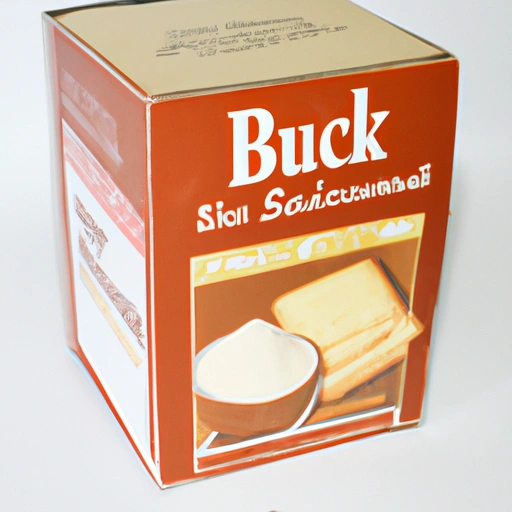Biscuit Mix
Description

Biscuit mix is a pre-made, all-purpose baking blend that simplifies the process of making biscuits and a range of other baked goods. It typically contains a combination of flour, shortening, salt, sugar, and leavening agents such as baking powder. This premixed ingredient has gained popularity for its convenience and versatility in the kitchen. With biscuit mix, both novice cooks and experienced bakers can quickly prepare doughs and batters without the need to measure out individual dry ingredients.
Common uses
Biscuit mix is commonly used as a base for traditional American biscuits, as well as a variety of other baked goods such as scones, dumplings, pancakes, and waffles. It is also a popular ingredient in quick breads, cobblers, and pot pies. The mix's ability to create a soft and fluffy texture with minimal effort makes it a go-to ingredient for many home bakers and professional chefs alike.
Nutritional value
Calories
A typical serving of biscuit mix (1/3 cup, or approximately 40g) contains around 150-160 calories.
Protein
Each serving of biscuit mix contains about 3-4 grams of protein, depending on the specific brand and formulation.
Fat
The fat content in a serving of biscuit mix is usually around 4-6 grams, largely attributable to the shortening or oil present in the mix.
Carbohydrates
Carbohydrates are present in the range of 23-28 grams per serving of biscuit mix, primarily from the flour component.
Vitamins
Vitamins in biscuit mix may include fortified elements such as folic acid, niacin, riboflavin, and thiamine.
Minerals
Common minerals found in biscuit mix include calcium and iron, which are often added during the fortification process.
Health benefits
While biscuit mix is not typically known for its health benefits, some brands may offer whole grain or gluten-free options that can cater to specific dietary needs. The inclusion of fortified vitamins and minerals can also contribute to a balanced diet when consumed in moderation.
Potential risks
Overconsumption of products made with biscuit mix can lead to excessive intake of calories, fats, and carbohydrates. Additionally, some mixes may contain trans fats or high levels of sodium, which could pose health risks if consumed frequently. Individuals with gluten intolerance or celiac disease should avoid traditional biscuit mix unless it is specifically labeled as gluten-free.
Common recipes
Biscuit mix is used in recipes for classic biscuits, strawberry shortcakes, quick breads, coffee cakes, and savory casseroles. It can also be used as a topping for fruit cobblers or to create a crust for quiches and pies.
Cooking methods
Typical methods for preparing biscuit mix include baking, pan-frying for pancakes or waffles, and steaming when used as dumplings in stews.
Pairing with other ingredients
Biscuit mix pairs well with a variety of flavors, from sweet jams and honeys for breakfast dishes to hearty meats and vegetables in savory applications.
Summary
Biscuit mix is a versatile and convenient ingredient cherished by home cooks and professionals for its ability to produce a wide array of baked goods with ease. Although not a health food, it can be a time-saving addition to the pantry and enjoyed in moderation. From sweet to savory, biscuit mix offers a foundation for endless culinary creativity.